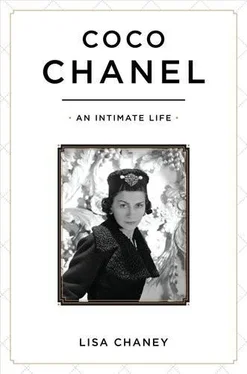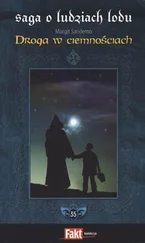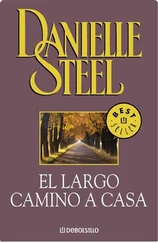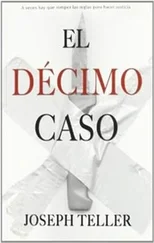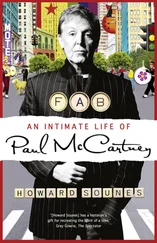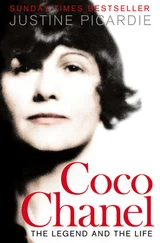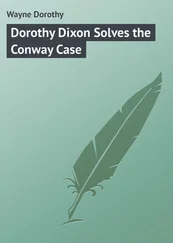King George V came to Paris to celebrate the armistice, and a large and distinguished party met at the Capels’ apartment to watch the procession from their balcony. The English socialite and diplomat’s wife, Lady Helen d’Abernon, later one of Gabrielle’s clients, recorded:
It was a wet day and the entry was far from imposing, although guns fired and the streets were lined with troops and with spectators the whole way to the Elysée…
I passed most of the morning in the company of monsieur Bondy, a quiet but charming writer, and at intervals “Boy” Capel came and sat down beside us. The jeune ménage —his and Diana’s — appears oddly assorted. Capel is a curious, rather strange-looking man, more French than English. He has had an eclectic and not unromantic past, yet he is interested — and successfully interested — in big financial affairs. Diana is very pretty and has the charm of all the Listers, but she seems a half-assimilated, exotic little figure amongst these brilliant, vociferous, scintillating French people. They appear metallic, yet I do not think that they are fundamentally hard — sensitive rather, in an unsentimental, slightly animal way. I like them and admire them, while realizing that they are as different from the Anglo Saxons as it is possible to be. 14
In hinting at the chasm of difference between the French and the Anglo-Saxons, in noticing how French Arthur was, and how only “half-assimilated” Diana seemed among this gathering of “brilliant” people, Helen d’Abernon’s comments were unwittingly astute. Yet in addition to their great cultural differences coexisted Arthur’s “not unromantic past,” in the form of Gabrielle. Try as he might, he could not banish her from his mind.
Nevertheless, the Capel family was to grow, and in April 1919, while Diana was staying in Scotland with her sister Lady Lovat, she was delivered of a baby girl. Christened Ann Diana France Ayesha Capel, she was a most welcome addition to Arthur’s life.
Yet though he and his blue-eyed English wife socialized a good deal, she was not proving as docile and compliant as Arthur might have imagined when he chose her over the extraordinary and characterful Gabrielle Chanel. As the months wore on, time was not tempering the wedded couple’s differences.
For example, previously Arthur had seen nothing unusual in buying clothes for Diana from Gabrielle’s salon in Biarritz, but once married, Diana began to object. Arthur overruled her. Why should she not be dressed by the most exciting designer in Paris? The long-standing tradition in Diana’s family has it that she disliked Gabrielle. 15
Meanwhile, Arthur had come to the decision that he was no longer able to live without Gabrielle, and he made his way back to her, in her villa out of town. If Arthur didn’t actually tell Diana, she soon guessed it anyway, and found the negotiation of the age-old triangle in the ensuing period most painful to accept. She spent Easter 1919 alone and weeping. While Arthur’s guilt weighed upon him, any objections Diana might have raised were ignored, and his visits to Gabrielle grew more frequent.
There were few in Paris in whom Diana could confide, but she learned to lean a little on an elderly English friend, Lady Portarlington, who would come and keep her company when Diana knew that Arthur must be with Gabrielle. Keeping a mistress was so commonplace that Paris would have been more surprised at its causing disagreement than at its actually happening. And anyway, Arthur was almost universally liked. Diana’s unhappiness at accepting what Bertha told her — that her brother “just cannot give Gabrielle up”—made the young foreigner loath to remain in Paris. 16Thus she took to spending more time in England, where her presence was easily explained: Arthur was very busy, and Diana was visiting friends and family. She also took up her flirtation with her old friend Duff Cooper once more. Even so, while Cooper’s recent marriage to the beautiful socialite Lady Diana Manners was never to inhibit his activities, his and Diana Capel’s enjoyable flirtation did not develop into a full-blown affair. 17
At the anniversary Victory Ball of November 1919, Cooper talked with Diana, who was “looking very well in gold trousers.” 18(It was still most unusual for a woman to wear trousers, and these were almost certainly from Chanel.) One wonders if Diana and Cooper spoke of Gabrielle. When, earlier that same day, Arthur had once again absented himself from home, he probably didn’t tell Diana that he was to act as a witness at the marriage of Gabrielle’s sister Antoinette.
Having failed to find a Frenchman who would marry her, Antoinette had fallen in love with a Canadian airman ten years her junior. To Oscar Fleming, the son of a wealthy but strict Protestant Ontarian, Antoinette appeared exciting and sophisticated. Whatever Gabrielle’s opinion of this whirlwind romance, the beautiful lace wedding dress she had in her collection for that season was very likely designed for Antoinette.
Not long after the newlyweds’ arrival in Canada, with Antoinette’s maid and many trunks of clothes, Antoinette began sending plaintive letters to Gabrielle and Adrienne, begging for a passage home. Little is known about Antoinette’s time in Canada but, apparently, Oscar’s father insisted his son finish his training as a lawyer in Toronto, and said he would work better if he studied there alone. Antoinette’s maid soon left her, but Antoinette was obliged to remain alone in Ontario with her in-laws. She spoke almost no English and was desperately unhappy. The replies to her letters that came from Paris exhorted her to persevere. Could she not try out her Chanel clothes from her trousseau on the stores in Detroit? All that is known of how Antoinette went about this is that she was unsuccessful. 19
Two days before Christmas 1919, Diana telephoned Duff Cooper to say she had just arrived in London. Arthur had, meanwhile, started for the south of France, and she was to join him in a fortnight. 20
Diana lunched with Duff Cooper and her friend Lady Rosslyn, then flirted with Cooper as their taxi crawled through the London traffic. Cooper had dropped Diana back at Asprey’s for tea with Lady Rosslyn, but noticed that Diana had forgotten her book. Turning back and finding her still standing outside Asprey’s with her friend, Cooper returned the book and drove off. Reading the paper the following morning, he realized why, standing there on the pavement, Lady Rosslyn had looked so awful. She was about to give Diana a terrible piece of news that Lord Rosslyn had cabled her, and for which there was no good way to prepare Diana.
The details were sketchy, but a few hours earlier, as Arthur was driving to the south of France, it appeared that one of his tires had burst. The car was flung upside down, it exploded into flames, and he had died in the blaze. While the car was burned, almost to a shell, Arthur’s mechanic, Mansfield, was badly injured but had managed to escape. Duff Cooper wrote: “December 24, 1919. The first thing I saw in the Daily Express this morning was the death of Boy Capel, Diana’s husband, who was killed in a motor accident in the south of France on Monday [22 December]. I was very shocked.” Arthur had almost certainly spent the night before that fateful day with Gabrielle. 21Then he had set out with Mansfield to make the 620-mile journey south.
Some weeks later, when Lady Rosslyn told Duff Cooper how dreadful it had been breaking the news of Arthur’s death to Diana, she added a bleak insight into the workings of their marriage. She said “how impossible Diana’s relations with Capel were becoming, how he had entirely ceased to live with her and hardly ever spoke to her. That he confessed she had got on his nerves and he could barely stand her presence.” 22
Читать дальше
